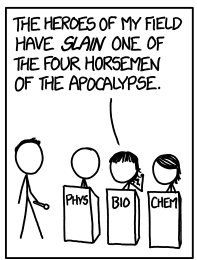At the start of the pandemic, I heard that Covid was likely to be a problem. I didn't pay much attention, because I remembered the Swine Flu "pandemic", and Covid was getting less attention than Swine Flu did at the time. I also knew that the media has a strong incentive to cause hype over things that aren't really dangerous trends. I am in an age range very unlikely to die from disease, and claims of a lung plague causing lasting brain problems sounded absurd.

I figured that if a disease about as deadly as the regular flu caused so much panic, and Covid caused less and mainly harmed people already at respiratory risk, I didn't need to worry about it.
I eventually updated my beliefs, but I don't see how I could have avoided making my mistake. How could I have done better?
Now that a bunch of answers are in, I will say what I think the mistakes were.
First of all, a clarification. I heard about it sometime in early February (I don't remember specifically since I wasn't paying much attention), and I re-examined the data and updated my belief in whether it was a problem at the beginning of March, when I noticed that even people who normally don't worry about things like this started considering a lockdown. Remember: I knew it was spreading, I thought that it wouldn't be much worse than regular diseases.
The mistake wasn't "I should have listened to the trustworthy sources instead of the untrustworthy ones". I didn't know much about which sources were the most reliable, and what I did know wouldn't have helped. For example, I know that where people put their own money is much more reliable than what they tell other people to do (why prediction markets are so much more accurate than other things). However, the US stock market reached an all time high on February 12, indicating that people whose whole job is paying attention to this stuff weren't worried at all.
The mistakes I did do were these:
- I had been too overconfident in civilization's ability to withstand plague. Disease has been pretty much eradicated, and even if a new one appears there are over-the-counter cough medicine and fever reducers and things.

My mistake was not re-evaluating this belief based on things that almost became big. I should have updated based on Ebola and SARS but didn't.
2. Personal experience said it was even less dangerous than the flu. My elderly great-aunt tested positive in late February, but was almost asymptomatic. Also, my parents and I got a bad cold at the end of January with the same symptoms (dry cough, fever, got better then a few days later it became bad again), and although we didn't think to test it at the time, once we heard of covid we thought that was probably it. Our symptoms definitely weren't worth freaking out about. I probably should have payed more attention to other people's reports of worse symptoms, although my prior of "lung virus causes permanent brain damage" was much less than "placebo effect and/or typical media terrible statistics", and although genetic variation is real it didn't seem likely to have "shut down the country" level severity. I'm not quite sure how this mistake could have been fixed.
3. I should have checked a source about China, not just from places that don't have much covid yet. I'm not fluent in Chinese, but I really should have at least checked how strictly they were quarantining and compared it to what they did during SARS. I didn't really look into it at all.
4. There was another problem, but this would take longer to explain and would need its own post.
Any congressional report is political. Even if the report would only reflect a clear consensus of the Republicans for the lab leak, that in itself is evidence of political pressure building up.
If there's any committee started where the Republicans can invite witnesses they for example can invite Hugh Auchincloss on the stand and asking him why he thought that funding the Baric&Shi would have been expected to go through the P3 framework.
Then the follow up question of whether he thinks that Fauci thought at the time that the PDF that Fauci sent him with the title "Baric, Shi et al - Nature medicine - SARS Gain of function" described any gain of function experiments.
I don't see any way how Auchincloss could answer those questions in a way that wouldn't be clearly look very bad for Fauci.
"Fauci's college thought Fauci thought the Baric&Shi paper is gain of function research while Fauci tells congress under oath that it isn't" would be a story that's simple enough for everybody to understand.
A bipartisan group would actually need buy-in from the democracts. The decision to task the US intelligence community which writing their report likely removed the possibility to push for a congressional commission on the topic because democrats would just say "lets wait for the US intelligence community". Tasking the intelligence community worked as a bipartisan way to get a report.
How about actually reading their arguments and evaluating the arguments based on their merits? I know that's a strange idea, but maybe it's worthwhile here. The report does contain some new information such as that which comes from US satellite surveilance.
It adds to the evidence about the Chinese fight against the virus before it was officially announced and thus puts the allegations into a form where China not answering them is more incriminating.